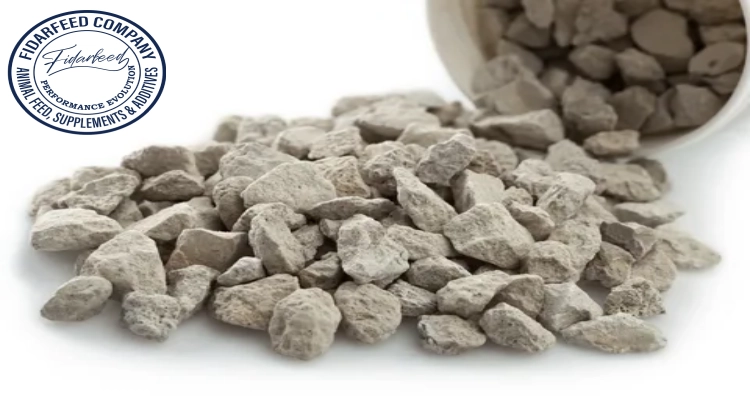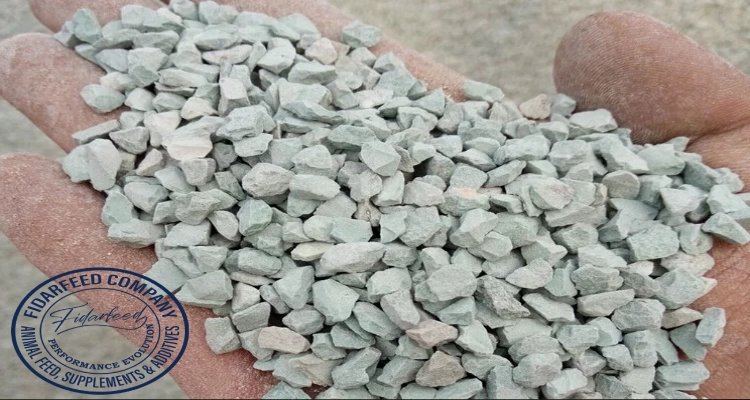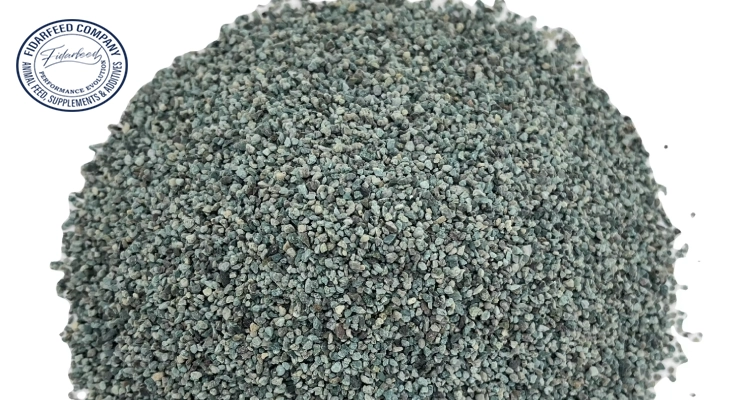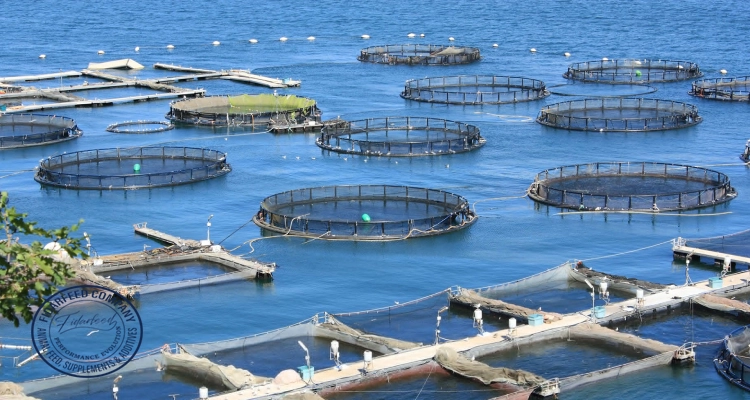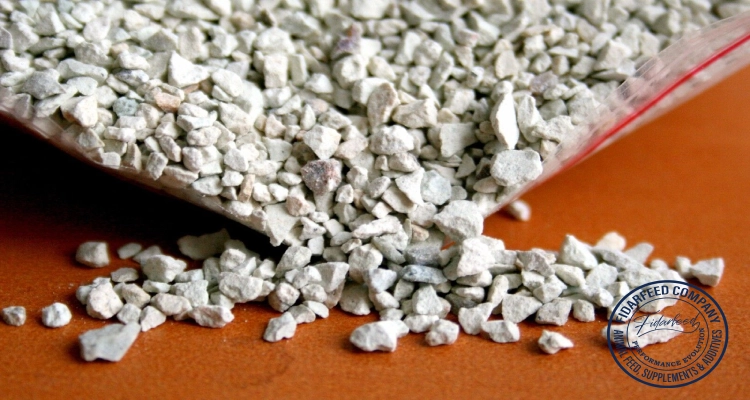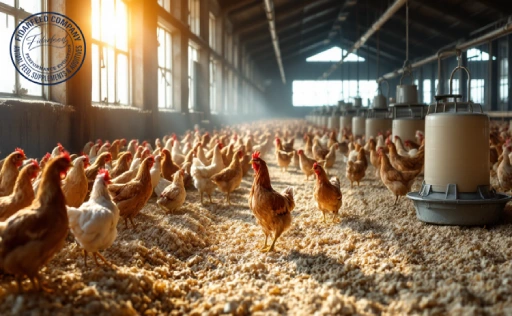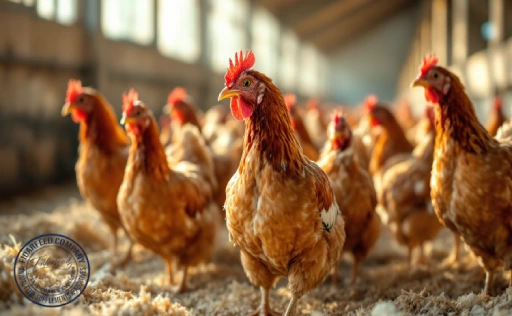Introduction: Why Zeolite is Gaining Popularity in Modern Animal Breeding
Zeolite Benefits for Health in modern animal breeding are becoming impossible to ignore. As more farmers and feed specialists search for natural, safe, and effective solutions to boost animal health and productivity, zeolite has moved into the spotlight. It’s not just another trend—it’s a practical, science-backed tool that’s transforming farms across the globe.
Learn more about: Active Probiotic Yeast for Large animal
Whether you’re raising cattle, chickens, pigs, or fish, this humble mineral offers a range of advantages that support both animal well-being and operational efficiency. Curious about how zeolite can make a difference in your setup? Keep reading—you’re in for a practical and eye-opening guide.
What Is Zeolite? A Natural Mineral with Powerful Benefits
With increasing interest in natural supplements, zeolite benefits for health in modern animal breeding have become a proven solution for enhancing animal well-being across all sectors.
Zeolite is a naturally occurring volcanic mineral formed when ash and lava meet alkaline groundwater. What makes it special? Its unique honeycomb-like structure, filled with microscopic pores, gives zeolite powerful absorption and ion-exchange properties. Think of it as a natural filter—it traps toxins, ammonia, heavy metals, and other harmful substances while releasing beneficial minerals like calcium and potassium.
Learn more about: How to Control Ammonia Levels in Poultry Houses Using Zeolite
This ability to “cleanse and balance” makes zeolite incredibly valuable in modern animal breeding. It can be added to feed or used in bedding and water systems, offering multiple avenues to promote health and reduce stress for animals. And best of all, it’s non-toxic, eco-friendly, and cost-effective.
Zeolite Benefits for Cattle: Boosting Health and Milk Quality Naturally
Cattle breeders are always looking for ways to improve animal health without over-relying on antibiotics. Zeolite offers a natural alternative. When added to feed, it supports digestion by balancing gut pH and binding harmful substances like aflatoxins and ammonia. This means healthier rumen function and reduced risk of metabolic disorders.
Learn more about: Affordable zeolite feed additive: Your Guide to High-Quality, Low-Cost Options
Scientific studies have shown that cows supplemented with zeolite exhibit increased feed efficiency and milk yield. One dairy farm in Germany, for example, reported a 10% increase in milk production after incorporating zeolite into their feed program over a 6-month period. Additionally, cows showed fewer signs of stress, better hoof health, and more consistent body condition scores. It’s a win-win for both animal welfare and farm economics.
Improving Poultry Health with Zeolite: Stronger Birds, Better Eggs
Poultry farms—whether small backyard coops or large commercial operations—can also benefit immensely from zeolite. For starters, adding zeolite to chicken feed helps with nutrient absorption, leading to faster growth and better feed conversion ratios. In layers, it enhances eggshell strength and improves egg production quality.
Learn more about: Top Zeolite Suppliers in Iran and Worldwide
Another major advantage is its ability to reduce ammonia levels in litter. High ammonia not only smells unpleasant but can cause respiratory problems and increase disease risk. By absorbing excess moisture and gases, zeolite creates a drier, healthier environment that supports strong immune responses in birds.
In one study conducted in Turkey, broilers fed with a zeolite-supplemented diet showed significantly improved weight gain and lower mortality rates compared to the control group—clear proof that zeolite is more than hype.
Zeolite in Pig Farming: Cleaner Pens and Healthier Hogs
Pigs are known for their sensitive digestive systems and susceptibility to gastrointestinal issues. Zeolite steps in as a digestive aid, binding toxins in the gut and improving nutrient uptake. It also helps regulate nitrogen levels, which reduces ammonia emissions—a common concern in pig housing.
Learn more about: Boost Poultry Health: How Zeolite Cuts Ammonia and Cleans the Air
Using zeolite in bedding or manure pits drastically cuts down on foul odors and airborne irritants. This not only makes life more pleasant for workers but also creates a cleaner, less stressful living space for the pigs themselves. Farmers have observed firmer stools, reduced diarrhea cases, and better weight gain consistency when zeolite is used regularly.
Plus, it helps reduce the spread of disease. Cleaner pens mean fewer pathogens—an essential step in maintaining a healthy herd without relying heavily on medication.
Revolutionizing Aquaculture: Zeolite Benefits for Health in Fish Farming
In fish farming, water quality is everything. Poor water means stressed fish, slower growth, and higher mortality. Zeolite acts like a natural filter in ponds and tanks, binding ammonia and other waste products that can quickly accumulate in closed systems.
By keeping water cleaner, zeolite reduces the need for frequent water changes or chemical treatments. It also helps balance pH and adds essential minerals, creating a more stable environment for fish to thrive.
Learn more about: Zeolite: Unlock Better Digestion and Superior Livestock Health
In tilapia and shrimp farming, zeolite has been used to prevent ammonia spikes that often lead to mass die-offs. Farms that integrate zeolite report higher survival rates, faster growth, and reduced feeding costs—proof that it’s an investment worth considering.
How Zeolite Supports a Cleaner, Healthier Farm Environment
Beyond animal health, zeolite contributes to a more sustainable and manageable farm. Its ability to absorb moisture and bind odors makes it ideal for managing waste, whether it’s poultry litter, pig manure, or cow dung.
Learn more about: What Is Zeolite and Why Do Livestock Farmers Need It?
Odor control isn’t just about comfort—it directly impacts worker safety and animal stress levels. A cleaner environment supports healthier animals, reduces vet costs, and boosts farm morale. In some operations, zeolite has even helped reduce fly populations by drying out manure faster, making it less hospitable for pests.
Practical Tips: How to Use Zeolite Effectively in Your Animal Breeding Program
Incorporating zeolite into your routine is easier than you might think. For feed, zeolite is typically added at 1–2% of the total ration. In bedding, a thin layer of zeolite can be spread to absorb moisture and reduce odors. For fish farming, zeolite is used in filter systems or added directly to ponds in powdered form.
Learn more about: Your Essential Checklist When Selecting Bulk Animal Feed Suppliers
Choose high-quality, natural zeolite with a consistent particle size. Always consult with a feed expert or veterinarian before adjusting diets, especially in high-performance systems.
Keep in mind: while zeolite is highly effective, it works best as part of a comprehensive health and management strategy. It’s a supportive tool—not a miracle fix.
Zeolite: A Smart Investment for Sustainable Animal Health
In today’s animal breeding industry, sustainability, performance, and welfare go hand in hand. Zeolite addresses all three. It’s a natural, low-cost solution that enhances animal well-being, improves productivity, and reduces the environmental footprint of farms.
As more producers face pressure to cut antibiotic use and meet consumer expectations for ethical farming, zeolite offers a smart, science-backed alternative. Its adaptability across species—from cattle and poultry to swine and fish—makes it a versatile tool for modern breeders.
Conclusion: Transform Your Breeding Operation with the Power of Zeolite
From purifying fish ponds to enhancing milk yields in dairy cattle, the benefits of zeolite are clear, proven, and within reach. This mineral doesn’t just help animals thrive—it helps breeders succeed by making farms cleaner, more efficient, and more sustainable.
If you’re looking to upgrade your animal breeding program with a natural edge, zeolite could be the game-changer you’ve been waiting for. Have you tried zeolite on your farm? What results have you seen? Share your experiences in the comments, ask your questions, and let’s build a better future for animal health—together.

